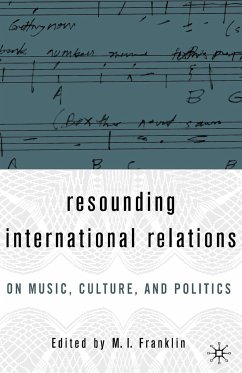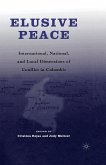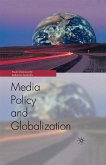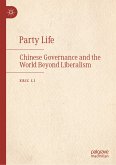This book explores a provocative area of inquiry for critical theory and research into world politics and popular culture: music. Not just because political science barely engages with anything musical, but also because it is clear that many opportunities for critical scholarship and reflection on global politics and economics are present in the spaces and relationships created by organized sound. It is easy to focus on the textual elements of music, but there is more at stake than just the words. Critical reflection on the intersections between music and politics also need to take into account the visceral and non-verbal elements such as counterpoint and harmony, polyphony and dissonance, noise, rhymes, rhythms, performance and the visual/aural dimensions to music-making.
Hinweis: Dieser Artikel kann nur an eine deutsche Lieferadresse ausgeliefert werden.
Hinweis: Dieser Artikel kann nur an eine deutsche Lieferadresse ausgeliefert werden.
'Resounding International Relations abounds with insightful moments of critical interpretation. Moving international studies 'from noun to verb,' it displaces the clichés of neo-realism with stimulating improvisations and dislodges theory from its long-standing attachment to anachronistic, geopolitical cartographies.' - - Michael J. Shapiro, University of Hawaii
'Music is an international language but for too long students of international politics have ignored it. This rich and diverse set of essays begins to set the record straight. In the hybridization of hip hop in West Africa and the political appropriation of Verdi, the global political economy of the music industry and the lessons for IR scholars in the lyrics of the Clash, the dynamic intersections between music, culture and global politics emerge loud and clear. Just when you thought you'd heard it all before, Resounding International Relations challenges received ideas about what counts as international politics, and what it sounds like.' - Jutta Weldes, University of Bristol
'Resounding International Relations: On Music, Culture and Politics pulls together a collection of vivid essays from critical international relations scholars in a stimulating analysis of music and culture. The book uses music and sound as a primary source of investigation to unpack political and cultural themes in a contemporary global world. This is a challenging and thought-provoking book; it refuses to accept music as a passive, unimportant cultural pursuit rather the book positions music as a cultural force that reveals insights and aspects of cultural politics and cultural interaction. The sounds, technologies and genres of music open up ways of thinking about international relations, revealing clusters of intensity, emotional expression and cultural change in different situations and cases. This book is a 'must-read' for anyone interested in finding out more about the interdisciplinary ground ofmusic, politics, human expression, desire and contemporary cultural movements.' - Dr. David Lines, University of Auckland
'Music is an international language but for too long students of international politics have ignored it. This rich and diverse set of essays begins to set the record straight. In the hybridization of hip hop in West Africa and the political appropriation of Verdi, the global political economy of the music industry and the lessons for IR scholars in the lyrics of the Clash, the dynamic intersections between music, culture and global politics emerge loud and clear. Just when you thought you'd heard it all before, Resounding International Relations challenges received ideas about what counts as international politics, and what it sounds like.' - Jutta Weldes, University of Bristol
'Resounding International Relations: On Music, Culture and Politics pulls together a collection of vivid essays from critical international relations scholars in a stimulating analysis of music and culture. The book uses music and sound as a primary source of investigation to unpack political and cultural themes in a contemporary global world. This is a challenging and thought-provoking book; it refuses to accept music as a passive, unimportant cultural pursuit rather the book positions music as a cultural force that reveals insights and aspects of cultural politics and cultural interaction. The sounds, technologies and genres of music open up ways of thinking about international relations, revealing clusters of intensity, emotional expression and cultural change in different situations and cases. This book is a 'must-read' for anyone interested in finding out more about the interdisciplinary ground ofmusic, politics, human expression, desire and contemporary cultural movements.' - Dr. David Lines, University of Auckland









